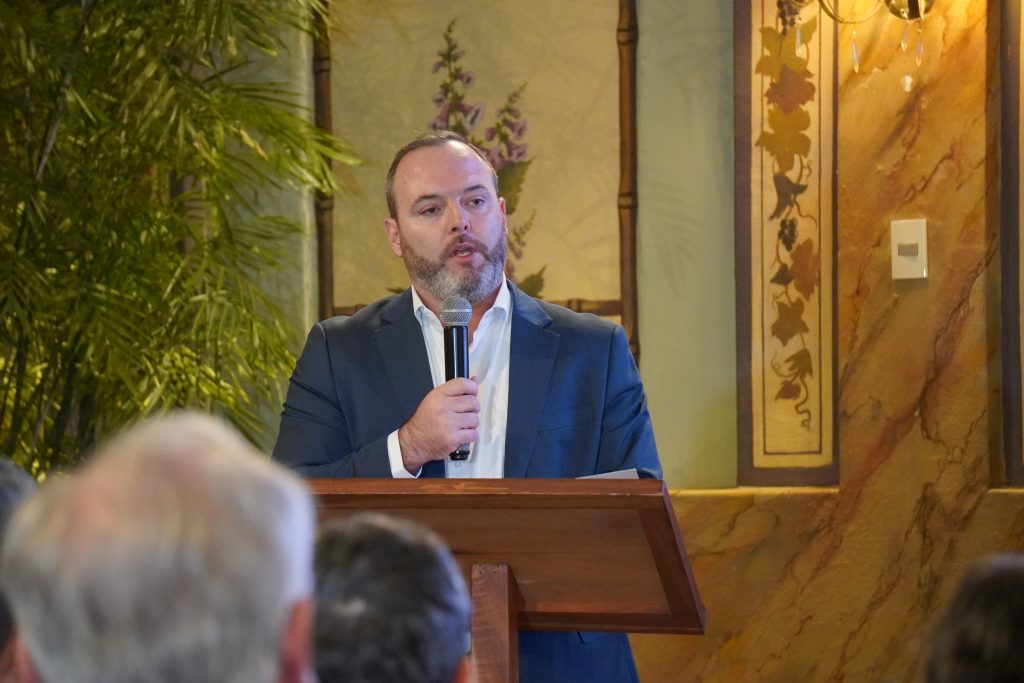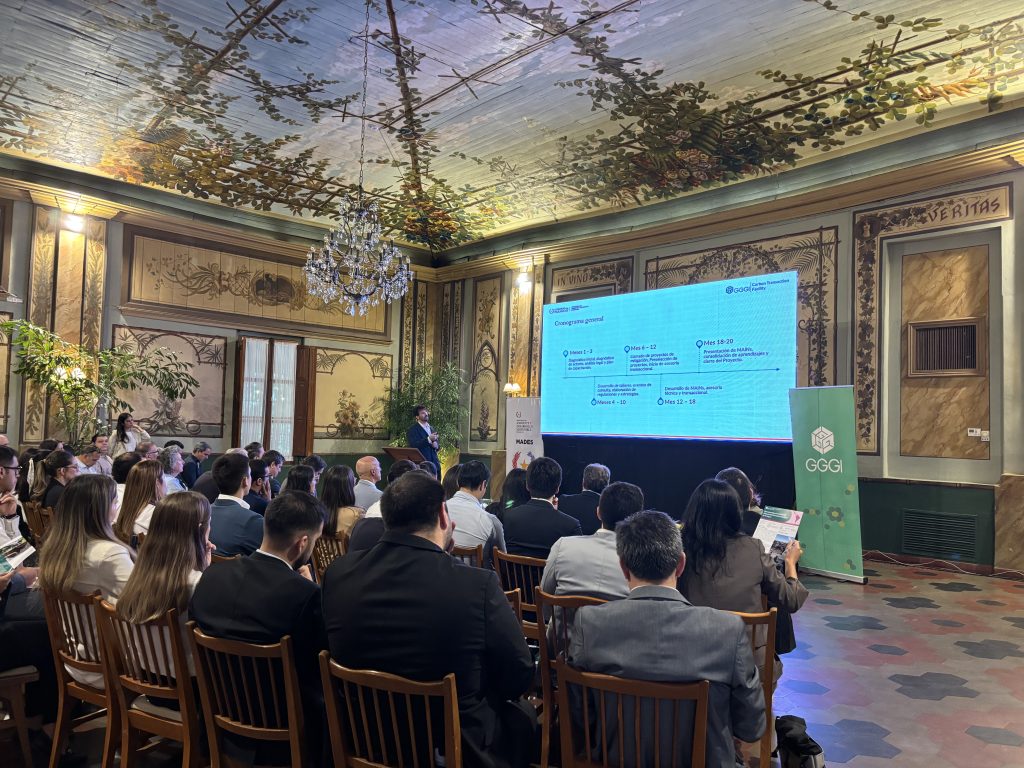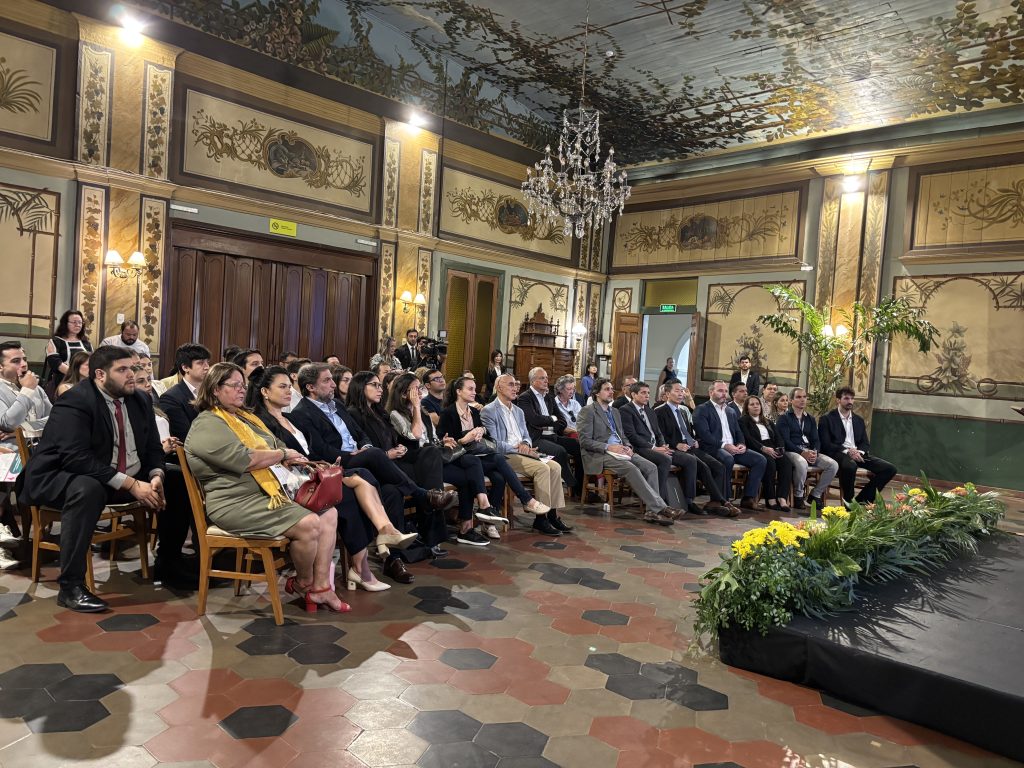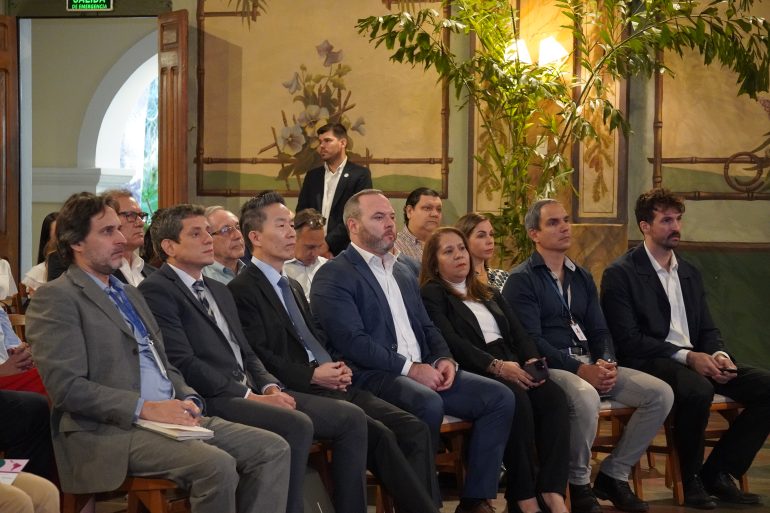Press Release – Asunción, Paraguay, April 7, 2025, – The Ministry of Environment and Sustainable Development (MADES) and the Global Green Growth Institute (GGGI) launched the project “Operationalisation of Paraguay’s National Carbon Market Framework”. Funded by GGGI’s Carbon Transaction Facility (CTF), this initiative will help the government implement a robust and transparent national carbon market aligned with Article 6 of the Paris Agreement, benefiting Paraguay’s economy while supporting sustainable development.
In 2023, the country enacted Law 7190, which establishes the framework for carbon credit trading, and in February of 2025 its implementing regulations were approved, creating the Carbon Markets Directorate and launching the Carbon Credit Registry. To ensure effective implementation, this project will build and strengthen institutional and governance capacities and develop monitoring mechanisms.
The operationalisation of the carbon market in Paraguay will seek to encourage the diversification of the economy, facilitating financial incentives for activities that reduce carbon emissions. At the same time, it will stimulate the use of technologies and the adoption of low-carbon solutions, as well as create new financing opportunities for environmental activities or projects that benefit society.


“The launch of this project is an important milestone in Paraguay’s strategy to strengthen the carbon market and attract international climate finance,” explains Victor González, Director of the MADES Carbon Markets Directorate. “With this initiative, we seek to generate tools that provide economic incentives to those activities that promote sustainable development in our country.”
Overall, 50 participants, including Government authorities, representatives of international organisations, the private sector and members of civil society participated in the event where the establishment of an inter-ministerial committee that will function as the governance body for the implementation of the carbon market was announced. This committee will be composed of the MADES, the Ministry of Economy and Finance (MEF), the Ministry of Foreign Affairs (MRE) and the Ministry of Industry and Commerce (MIC) allowing strong inter-ministerial collaboration to spearhead the good development of carbon markets in Paraguay.



“With this project, Paraguay positions itself as a strategic player in the international carbon market in line with Art. 6 of the Paris agreement” mentioned Aaron Drayer, deputy director of GGGI’s Carbon Pricing Unit. “Our goal is to build a carbon market that complements Paraguay’s productive activities and at the same time, creates new opportunities.”
In the coming months, the project will focus on the development of the regulatory framework, the capacity building of key stakeholders and the creation of monitoring mechanisms to ensure the proper functioning and achievements of Paraguay’s climate commitments.


About the Ministry of Environment and Sustainable Development (MADES)
The Ministry of Environment and Sustainable Development (MADES) establishes and evaluates Paraguay’s National Environmental Policy, promoting research, recovery, conservation, preservation, protection, management, and sustainable use of natural resources.
About the Carbon Transaction Facility (CTF)
The Carbon Transaction Facility is GGGI’s solution to open global carbon markets under Article 6 of the Paris Agreement. Its first pillar, the Article 6 Readiness Facility, aims to enable GGGI Member and partner countries to fully harness the market’s potential. While the second pillar, a collection of carbon funds, is focused on establishing Article 6 transactions. The Carbon Transaction Facility (CTF) is funded and supported by New Zealand’s Ministry of Foreign Affairs and Trade, Norway’s Ministry of Climate and Environment, and the Swedish Energy Agency.
About the Global Green Growth Institute (GGGI)
The Global Green Growth Institute (GGGI) was founded as a treaty-based international, inter-governmental organisation in 2012 at the United Nations Conference on Sustainable Development. GGGI supports its Member States in transitioning their economies toward a green growth model that simultaneously achieves poverty reduction, social inclusion, environmental sustainability, and economic growth. With 49 Member States and 29 Partner countries and regional integration organisations in the process of accession, GGGI delivers programs and projects in over 51 countries. These initiatives encompass developing innovative green growth solutions, technical support, capacity building, policy planning & implementation, and assistance in building a pipeline of bankable green investment projects, project financing, investments, and knowledge sharing. GGGI’s work contributes to its Member States’ efforts to fulfill the Sustainable Development Goals and the Nationally Determined Contributions to the Paris Agreement.
Photo credit:
© GGGI Paraguay


